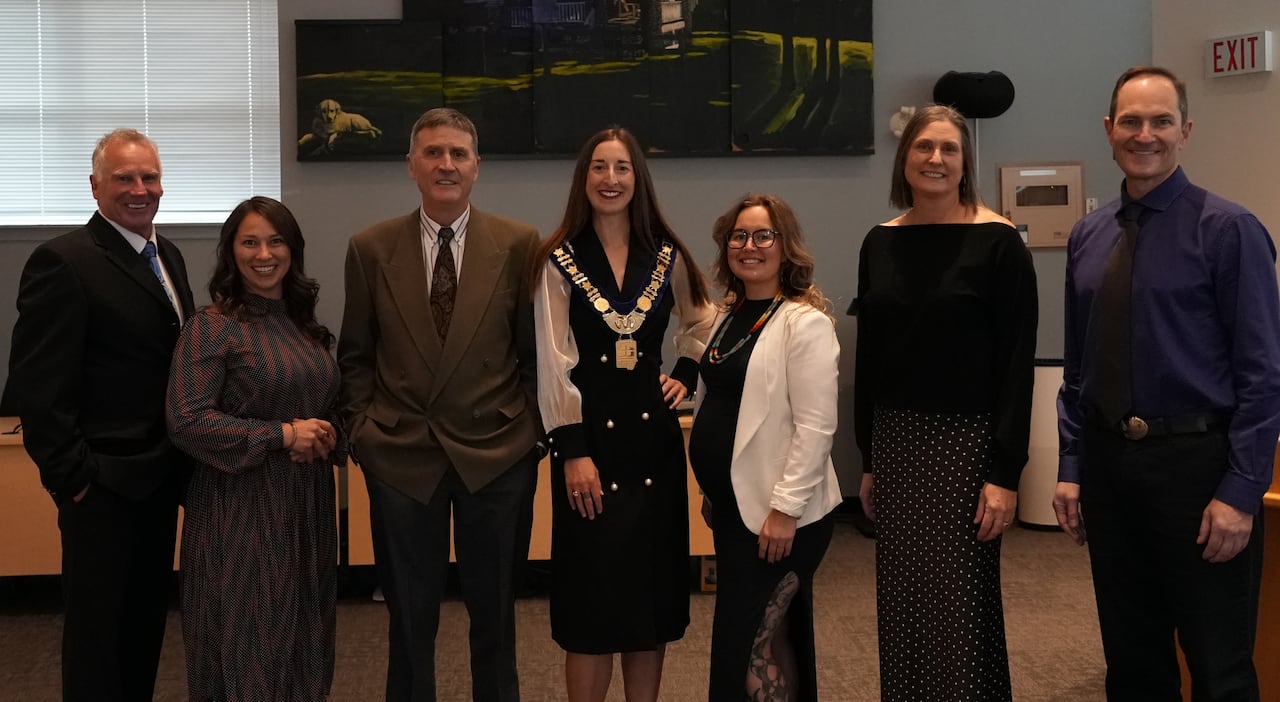Think your vote doesn't count?
Think again.
You just have to ask Michelle Backhouse and Allan Buckingham.
Banff's final council seat was decided by one vote between the two, with Backhouse's 742 votes ahead of Buckingham's 741 votes.
On election night, Backhouse was up by two votes, but the recount resulted in a one-vote margin.
Backhouse noted that her firefighter training helped deal with the pressure.
“It was a little stressful, but I think my role as a firefighter has taught me how to deal with stress and the outcome will be the best it can be,” she said.
Backhouse said this was her first time on the board: “I didn’t know it was that rare.”
Buckingham, who was running for the council for the third time, said they knew the vote would be tied but didn't expect the outcome. razor–thin border.
“In some ways you know every vote matters and it could be close… Two votes or one vote? You know it's possible, but you don't really think it's going to be that way,” Buckingham said.
They noted that it can be difficult to understand how the campaign is doing, especially without polls, which are usually conducted in large cities.
“It's been good, I'm hopeful and I've heard a lot of positive feedback. I was pretty close but not quite there,” Buckingham said.
Both said there was no doubt about the campaign, with Buckingham stating that “there are an endless number of things you can or should do during an election campaign.”
Buckingham could have sought a judicial review, but said a recount would be enough to determine the final result.
“I don’t think I need it,” Buckingham said.
If the vote were tied, provincial law stipulates that both candidates' names would be written on paper and a person would randomly select one of the boxes.
Jack Lucas, a political scientist at the University of Calgary, said a difference of one vote is “pretty rare.”
Close votes do happen, but are “extremely rare”
Lucas was part of the team that created the Canadian Municipal Elections Database, containing an archive of tens of thousands of Canadian municipal elections.
He said some elections are decided by a single vote, “especially in very, very small municipalities … but that is extremely rare.”
Lucas noted that there have been studies in the field of political science that show that some people believe it is irrational to vote because the single vote that decides an election is “vanishingly small.”
“The likelihood that any candidate would win by one vote and if you hadn't shown up the outcome would have been different is very small. But here we are. Sometimes it does happen.”
In the 2023 provincial election, the largest vote difference was in the Calgary-Acadia race, which was decided by 22 votes, while in Calgary-Glenmore the difference between the two top contenders was 48 votes. Both competitions were referred for judicial review..
At the federal level, 11 races were decided by a single vote between 1887 and 2025. Terrebonne rides in 2025 when Liberal candidate Tatiana Auguste defeated Bloc Québécois candidate Nathalie Sinclair-Desgagne after a judicial recount.
The three-day hearing took place in October after a woman who voted for Sinclair-Desgagne said her special ballot was returned due to an address error on the envelope sent by Elections Canada.
In the 2021 municipal election, seven votes were decided by one vote, and there was a tie in the Cardston district, according to the Alberta government.
However, six of them were in towns or villages and had less than 100 votes for each candidate, and in the remaining two each candidate received less than 200 votes.

Low voter turnout in Bow Valley
In the Bow Valley, municipal voter turnout has historically been below 50 percent.
The last three municipal elections in Banff have seen a gradual decline, with 1,786 voters out of a possible 4,588 turning out for the Oct. 20 vote, or about 39 percent. There were 2,090 voters in 2021 and 2,215 voters in 2017.
Calgary Eye opener8:10Minister of Municipal Affairs on changes in elections
Alberta's Minister of Municipal Affairs joins us to discuss how Calgary's elections performed under the province's new rules.
Leslie Taylor, who served two terms as Banff's first mayor and two terms as a council member, said she was “quite concerned” about the downward trend in voter turnout, especially on important community issues.
“We have a one-vote difference between the number 6 candidate who made it onto the board and the number 7 candidate who didn't. One vote does make a difference, and the demotion and the vote make a difference,” Taylor said.








